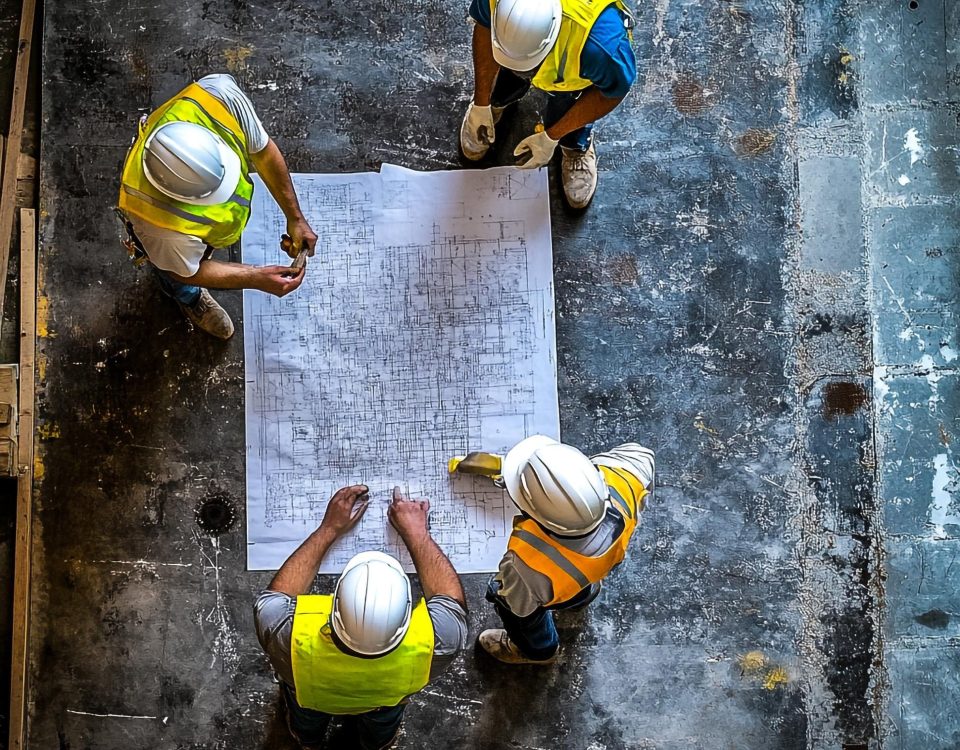New to working in construction? Not to worry, we have your back.
Navigating taxes can feel like a total and utter minefield at times, especially when it comes to understanding the different rates of deduction, allowable expenses, and the registration process. It may not be the most fun topic, however, getting to grips with all things CIS tax will ensure compliance. Even better, it could save you time and money!
In this guide, we cover everything you need to know about CIS tax – what it is, how it works, who it’s for – as well as breaking down how you can apply for a CIS rebate.
CIS tax explained
Construction Industry Scheme (CIS) tax refers to a tax deduction system designed by HMRC to ensure that construction workers pay tax on their earnings. It was introduced to reduce the level of tax fraud within the construction industry and simplify the method of tax collection.
How does CIS tax work?
There are two types of workers involved when it comes to CIS deductions: contractors and subcontractors. In a nutshell…
- Contractors: are individuals or businesses that employ subcontractors to carry out construction work.
- Subcontractors: are workers or businesses that are hired by contractors to perform labour (e.g. plumber, carpenter, bricklayer, tile setter, roofer, painter, electrician, the list goes on).
Under CIS, it’s the contractor’s responsibility to deduct money from a subcontractor’s payment and pass it onto HMRC. These deductions contribute to tax and National Insurance (NI) contributions.
Do I need to register for CIS?
If you’re a contractor in the construction industry, the answer is yes – it’s a requirement to register for CIS.
If you fall under the subcontractor category, the choice is yours. Registered subcontractors get taxed at 20%, while those not registered under CIS are taxed at 30%. So, while it’s not compulsory to register for CIS if you’re a subcontractor, it definitely has its benefits.
The important thing to note here is that subcontractors are responsible for managing their own taxes. What does that mean? Even though your contractor makes deductions from your pay, it’s up to you to make sure any deductions taken are used to offset the outstanding tax and NI you owe. In some cases, you may even find you’ve overpaid on your taxes, and that’s where CIS tax rebates come in.

How do I claim tax back?
Applying for a CIS tax return may not be as difficult as you think. In fact, the most ‘difficult’ part will probably be locating pesky bits of paperwork if you haven’t got a good filing system on the go.
To claim tax back through a CIS rebate, you first need to be registered for self-assessment. You can then make your CIS claim when filing for your self-assessment tax return (SATR).
Here’s a list of documents you’ll need to have handy for your claim:
- Pay slips or invoices: that show a record of your earnings and any tax that has already been deducted. This will be crucial for seeing if you’ve been overpaid or not.
- P60/P45 or tax return information: if you’re employed, your P60 or P45 form provides a summary of the tax you’ve paid during the year.
- UTR (Unique Taxpayer Reference) number: if you’re registered as self-employed.
- Receipts for deductible expenses: this only applies if you’re claiming deductions for things like home office expenses, charitable donations, or other work-related costs.
- Bank account details: If you’re expecting a refund, you’ll typically need to provide your bank account information to receive the money.
Having the necessary documents ready to go before starting your CIS claim is the best way to avoid delays.
Why is CIS tax important?
The Construction Industry Scheme is important for several reasons. We’ve listed a few key benefits below:
- Ensures Compliance: helps ensure that workers in the construction industry are paying the correct amount of tax, which is often a challenge for self-employed workers or smaller businesses.
- Reduces Tax Evasion: the system of direct deductions reduces the chances of subcontractors not paying their taxes, which has been a historical issue in the construction sector.
Supports National Insurance Contributions: CIS tax also ensures that subcontractors make the necessary NI contributions, which contributes to their state pension and other benefits.
File your CIS self-assessment tax return with Baa
Whether you’re a contractor or a subcontractor in the construction industry, Baa is here to help you make CIS tax rebates a breeze. Our accountants have assisted countless construction workers over the years, so we know we have the right experience to help you get your money back. From checking over your paperwork and calculations with a trained eye, to identifying allowable expenses that can minimise your tax liability, sorting out your CIS tax return has never been easier.
So what’re you waiting for? Our simple CIS rebate service can be done in just 3 steps!










